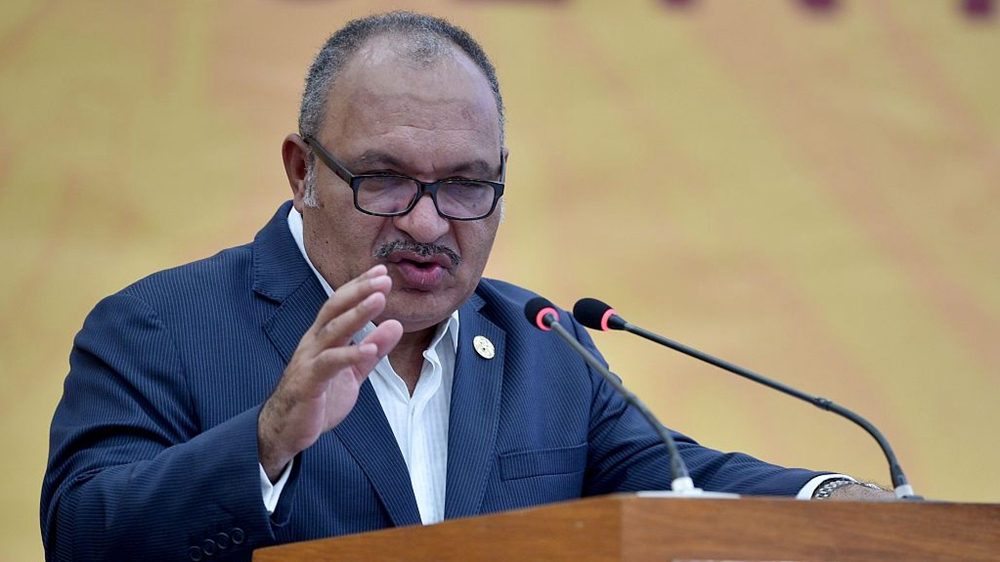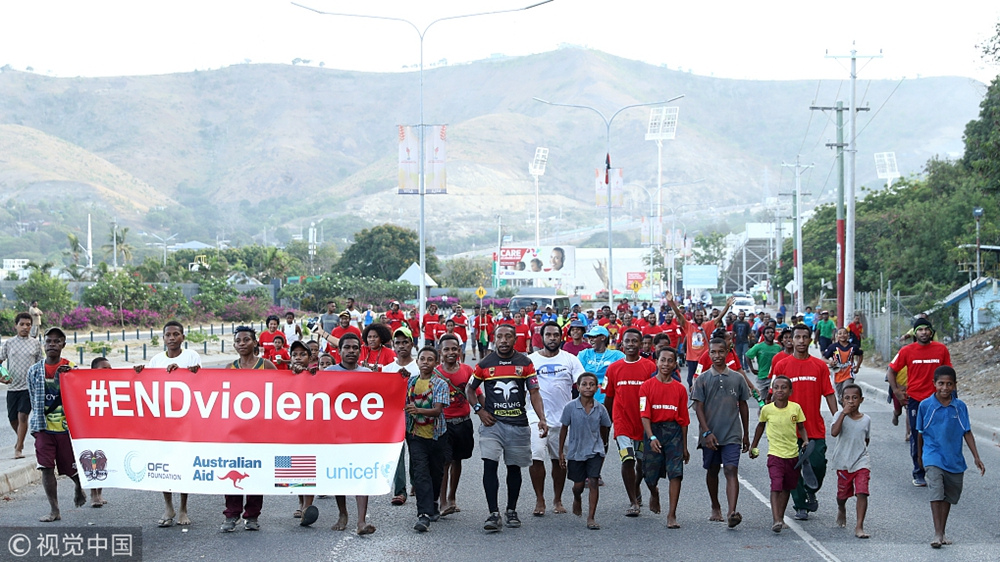
World
16:01, 08-Mar-2019
Papua New Guinea's men-only parliament eyes seats for women
CGTN

Papua New Guinea is considering making its currently all-male legislature more representative by reserving parliamentary seats for women.
Prime Minister Peter O'Neill introduced the proposal on International Women's Day on Friday, saying it was "only fair" that there was more debate about women's role "at the leadership level."
At present, a total of 111 members of parliament in Papua New Guinea represent 8.3 million people. However, there isn't a single woman MP.
Speaking on the annual day to promote equality, O'Neill said it was a "sad fact" that women's interests were neglected.
"In our own national parliament, we currently have no elected female member. Despite so many highly skilled and talented female candidates, they were not elected."

Participants walk in the Walk for Life in partnership with the #ENDviolence campaign to end domestic violence in Port Moresby, November 20, 2016. /VCG Photo
Participants walk in the Walk for Life in partnership with the #ENDviolence campaign to end domestic violence in Port Moresby, November 20, 2016. /VCG Photo
"I want to see this situation rectified and our government will present a proposal to Parliament that will create seats specifically for women."
Papua New Guinea is struggling to overcome its international reputation as the "worst place in the world to be a woman" and the land that #MeToo forgot.
Domestic and sexual violence are endemic and often go unpunished. It is estimated that two-thirds of women in Papua New Guinea experience domestic violence.
But a series of legal reforms have changed the penalties for domestic violence and victims say the police are now taking it more seriously.
There are signs that political parties are also taking women's role more seriously too. "We will never achieve our true potential if we do not attend to the core and basic issues of our communities," said O'Neill, adding that it's the wellbeing of all of our people, especially the women of our country.
In the past, seven women have been elected to the national assembly and more serve in provincial assemblies and district councils.
Source(s): AFP

SITEMAP
Copyright © 2018 CGTN. Beijing ICP prepared NO.16065310-3
Copyright © 2018 CGTN. Beijing ICP prepared NO.16065310-3